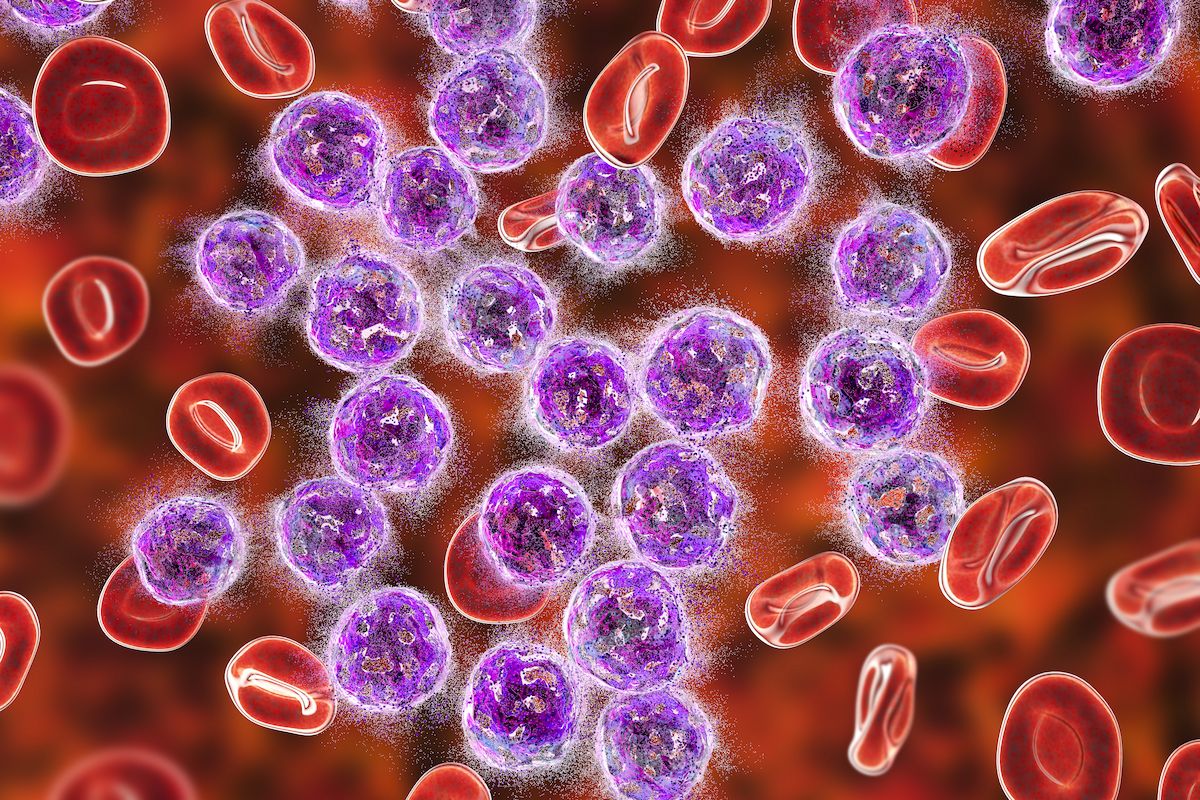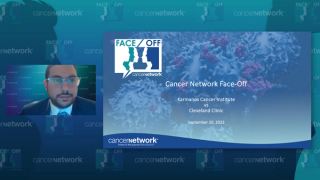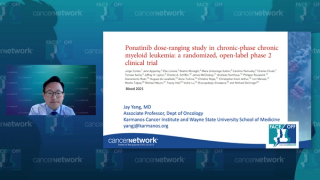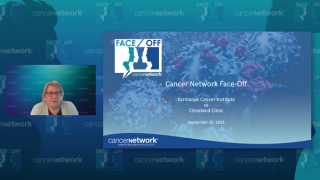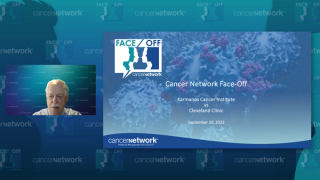
Leukemia
Latest News
Latest Videos

CME Content
More News
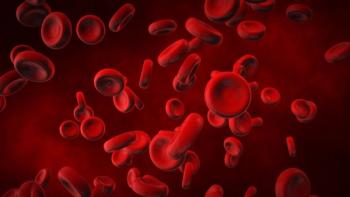
Findings from a retrospective study highlight an increase in the use of targeted agents like ibrutinib from 1998 to 2020 for American military veterans with chronic lymphocytic leukemia.
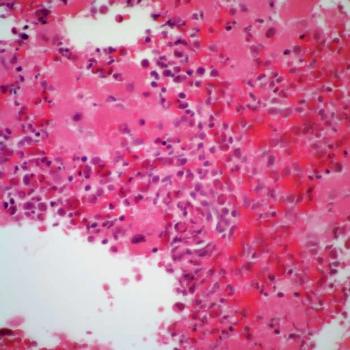
Treatment with asciminib produces a favorable safety profile among patients with Philadelphia chromosome–positive chronic myeloid leukemia in chronic phase.

Combining olverembatinib with blinatumomab appears to produce high complete molecular remission rates in patients with newly diagnosed, Philadelphia chromosome–positive acute lymphoblastic leukemia, says Elias Jabbour, MD.

A phase 1 clinical trial has found the optimal dosing schedule with a tolerable safety profile of vibecotamab in patients with relapsed/refractory acute myeloid leukemia.

Patients with chronic lymphocytic leukemia in the ALPINE study previously treated with BTK inhibitors are likely to remain sensitive to other BTK-targeting agents, says Jennifer Brown, MD, PhD.
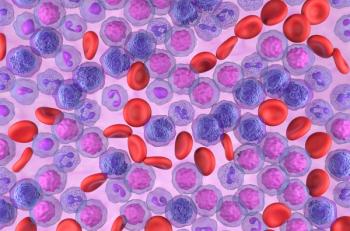
Pirtobrutinib produces a high rate of responses in patients with relapsed chronic lymphocytic leukemia harboring baseline BTK mutations, according to findings from the phase 1/2 BRUIN trial.

Data from the phase 3 SEQUIOA trial may support zanubrutinib as a best-in-class Bruton tyrosine kinase inhibitor in the frontline management of chronic lymphocytic leukemia.
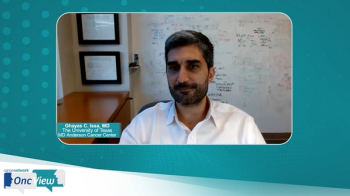
Ghayas C. Issa, MD, offers closing thoughts on genetic testing and targeted therapies for patients with relapsed/refractory acute myeloid leukemia.

Clinical insights on the evolving treatment landscape for patients with relapsed/refractory acute myeloid leukemia, with a focus on ongoing research and unmet needs.
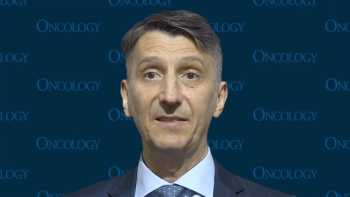
Fixed-dose ibrutinib plus venetoclax produces limited second malignancies among patients with chronic lymphocytic leukemia, says Paolo Ghia, MD, PhD.

Those with chronic graft-versus-host-disease who have received allogeneic hematopoietic stem cell transplant may experience enhanced graft-versus-leukemia effects, thus producing a lower relapse rate in acute myeloid leukemia.

In this Cancer Network Around the Practice program, Mazie Tsang, MD offers an overview of the current landscape surrounding frontline therapy in CLL.

Treatment with lisocabtagene maraleucel in the TRANSCEND CLL 004 study raises no new safety concerns in patients with relapsed/refractory chronic lymphocytic leukemia, says Tatyana Feldman, MD.

A medical oncologist reviews clinical trial data for revumenib and ziftomenib for patients with relapsed/refractory acute myeloid leukemia.

Asciminib results in greater efficacy, safety, and tolerability compared with bosutinib in patients with chronic myeloid leukemia, according to findings from the phase 3 ASCEMBL study.

Ghayas C. Issa, MD, discusses the pathway between KMT2A rearrangements/NPM1 and menin in relation to leukemia cells and how these genetic abnormalities impact prognosis.

Ibrutinib plus venetoclax appears to be effective across the overall chronic lymphocytic leukemia population in the CAPTIVATE study, although progression-free survival is shorter for those with TP53 mutations.

Revumenib treatment results in durable MRD-negative remissions in pediatric and adult patients with relapsed/refractory KMT2A rearranged acute leukemia in the phase 2 Augment-101 study.

Acalabrutinib on its own or in combination with obinutuzumab increases PFS and ORR in patients with chronic lymphocytic leukemia regardless of mutation status, according to follow-up data from the ELEVATE-TN trial.

Patients with NPM1-mutated acute monocytic leukemia who are minimal residual disease negative do not appear to benefit from allogeneic stem cell transplant after chemotherapy induction, even with a FLT3 ITD co-mutation.

When used as a minimal residual disease (MRD)–guided treatment approach, ibrutinib (Imbruvica) combined with venetoclax (Venclexta) improved progression-free and overall survival (OS) compared with fludarabine, cyclophosphamide, and rituximab (Rituxan; FCR) in patients with treatment-naive chronic lymphocytic leukemia (CLL), as observed in the phase 3 FLAIR trial.
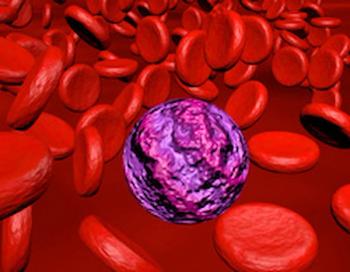
Treatment outcomes with obecabtagene autoleucel in patients with relapsed/refractory B-cell acute lymphoblastic leukemia appear to be better in those with lower leukemia burden at lymphodepletion in the FELIX study.
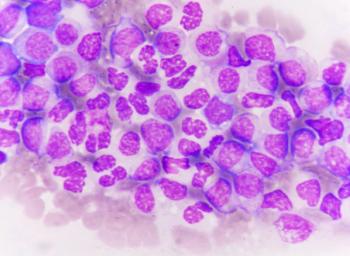
Data from the phase 1/2 BRUIN study support continuous BTK pathway inhibition as an important sequencing approach in chronic lymphocytic leukemia or small lymphocytic lymphoma, says Jennifer A. Woyach, MD.

Treatment with zanubrutinib also appears to improve overall survival compared with ibrutinib among patients with relapsed/refractory chronic lymphocytic leukemia or small lymphocytic lymphoma in the phase 3 ALPINE trial.

Treatment with venetoclax appears to be well-tolerated in patients with chronic lymphocytic leukemia or small lymphocytic lymphoma, says Nilanjan Ghosh, MD, PhD.




